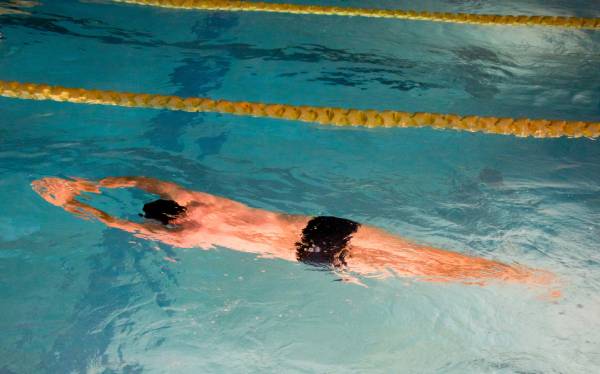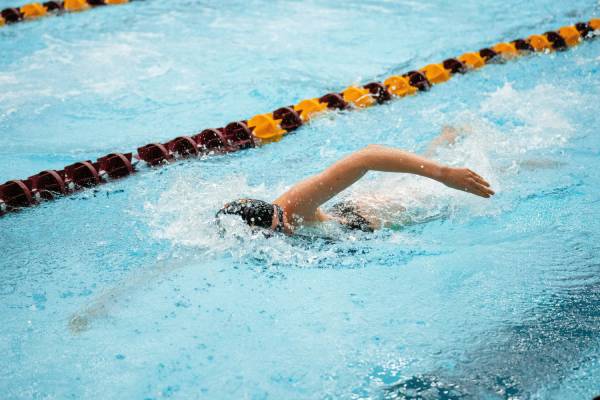Swimming is a different beast. At first glance, it looks graceful, like flying underwater. Then you try it. The water resists you, your arms flail, and suddenly, it feels like the pool is conspiring against you. I know the frustration all too well. My first time swimming, I couldn’t even make it one lap. I was gasping, panicked, and convinced my arms just weren’t built for this. Spoiler: it wasn’t my arms, it was everything else.

Breathing: The Trickiest Part of All
Breathing on land? Easy. Breathing in water? An entirely new ballgame. When I started, I held my breath, thinking that was smart. But then I’d turn to gasp, only to inhale half the pool. It felt like I’d never get it.
The trick? You have to breathe out when your face is underwater, steady and calm. Then, when you turn your head, you’re ready to take in air, not panic-gasp like I used to. I practiced this over and over, just standing in the shallow end blowing bubbles. It felt silly, but it worked. Soon enough, I wasn’t fighting the water, I was working with it.
Your Body Isn’t a Boat
Here’s the thing: humans aren’t naturally built to float in perfect alignment. When I first started, my legs would sink like anchors, and no amount of kicking could fix it. I felt like I was dragging a heavy suitcase through the pool. Turns out, the problem wasn’t my legs, it was my head.
If your head’s too high, your hips drop. If your hips drop, you’re plowing through the water like a bulldozer. I learned to keep my face down, almost as if I was staring at the bottom of the pool. It’s weird at first, but once I got the hang of it, my body felt like it was gliding instead of sinking.
Water: A Heavyweight Opponent
Let’s talk about water. It’s 800 times denser than air. That means every move you make is like pushing through molasses. If you’re sloppy with your strokes or thrashing with your kicks, the water wins.
When I started swimming, I thought kicking harder would make me faster. Nope. All it did was wear me out. Instead, I learned to focus on my technique: long, smooth strokes and controlled kicks. Think of the water as your partner, not your enemy. Slice through it, don’t fight it.

Why It Feels Exhausting
Swimming burns through your energy like nothing else. Your arms, legs, core, they’re all working overtime. And then there’s the breathing. Your body’s screaming for air, but you can only take it in small sips.
I remember pushing myself too hard at first, thinking I had to go fast all the time. Big mistake. The secret isn’t speed; it’s pacing. Once I slowed down and found a rhythm, everything changed. Suddenly, I could swim longer without feeling like my lungs were on fire.
What Helped Me Swim Better
Here’s what finally clicked for me:
- Breathing practice: I spent hours just floating, exhaling under the water, and inhaling when I turned. It’s not glamorous, but it works.
- Positioning matters: I had to retrain my body to stay horizontal. If your hips are dragging, you’re wasting energy.
- Think long and smooth: Short, choppy strokes slow you down. Reach out with each stroke like you’re stretching for something just out of reach.
- Relax: Fighting the water only makes it harder. Let yourself flow.
- Short sessions: At first, I’d swim for just 10 or 15 minutes. As I got stronger, I added more time.

What Nobody Tells You About Kicking
Let’s talk about kicks. When I started swimming, I thought they were the engine, the harder I kicked, the faster I’d go. Nope. All that energy was doing was churning up bubbles and wearing me out faster than a bad sprint.
Effective kicking is all about finesse, not brute force. Keep your legs straight but relaxed, and kick from the hips, not the knees. Think of it like snapping a whip, small movements that create big results. It feels awkward at first, like trying to walk on stilts, but once you get it, you’ll move faster without burning through your energy reserves.
The Silent Power of Your Core
Here’s something surprising: your core does a ton of the work in swimming. When I first started, I thought it was all about my arms and legs. Wrong again. Your core is like the secret glue holding everything together. It keeps you steady, helps you rotate smoothly, and prevents you from wobbling all over the place like a loose jellyfish.
One drill that helped me was the “dead man float.” You lie face down in the water, arms outstretched, and just focus on engaging your core to keep your body aligned. It sounds boring, but trust me, it makes a huge difference when you’re swimming laps.
Why the Water Feels So Unforgiving
The thing about water is it doesn’t give you any breaks. On land, if you trip, you can pause and recover. In water, you’re either moving, or you’re sinking (or at least feeling like you are). That constant resistance can feel like an uphill battle, especially when you’re new.
I used to compare swimming to running, and it’s just… not the same. Running is repetitive, you set a pace and stick with it. Swimming is fluid (pun intended). You’re adjusting to the water, dealing with resistance, and trying to make every movement count. It’s a whole-body negotiation, and the water doesn’t care if you’re tired.

Why You Shouldn’t Give Up
Swimming is tough because it’s so different. You’re learning to breathe, balance, and move all at once, while surrounded by something that doesn’t want to make it easy. But once you get the hang of it, it’s magical.
Now, I can swim lap after lap without panicking. It’s peaceful, almost meditative. But I’ll never forget how hard it felt at the start. If you’re struggling, don’t worry. Take it slow, focus on one thing at a time, and trust the process. Swimming doesn’t come naturally, but once it does, it feels like second nature.




